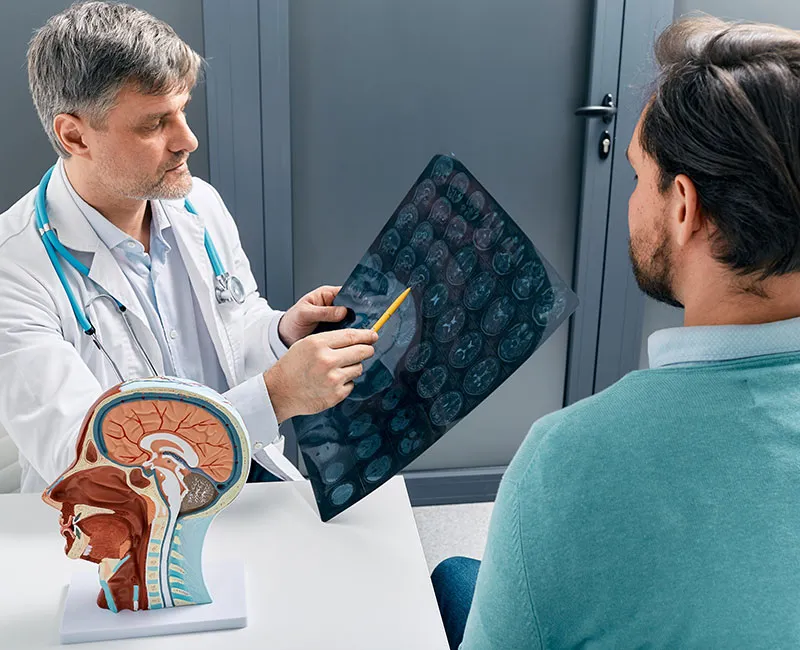


At Ashraya Hospital, we understand the complexities of epilepsy and seizure disorders. With a dedicated team of neurologists and specialists, we provide advanced diagnostic and treatment services to help manage seizures effectively and improve the quality of life for patients. Our hospital, conveniently located in Wakad and Pimpri-Chinchwad, offers comprehensive care, from diagnosis to ongoing treatment and monitoring.
Epilepsy is a neurological disorder that causes repeated seizures, and managing it requires expert care. Whether you’ve been recently diagnosed or are seeking a second opinion on seizure management, our experienced specialists are here to help you manage and treat epilepsy effectively.
Epilepsy is a chronic neurological condition that causes recurrent, unprovoked seizures. Seizures are abnormal electrical discharges in the brain, and these can cause temporary changes in consciousness, movement, behavior, or sensation. Epilepsy is often diagnosed after a person has had two or more seizures.
Seizures can vary greatly in severity and duration, and understanding the type of seizure is key to effective treatment.
Epilepsy and seizures can result from various causes, including:
While the exact cause may not always be identified, understanding potential triggers helps guide treatment.
Epilepsy can present with a variety of symptoms, including:
If you or someone you know experiences these symptoms, it's crucial to consult a healthcare professional for a proper diagnosis.
A proper diagnosis of epilepsy typically involves:

Understanding the type of seizures, triggers, and duration.

(Electroencephalogram)
A test that measures electrical activity in the brain and helps detect seizure activity.

(CT/MRI scans)
Used to check for underlying causes like brain tumours, strokes, or structural abnormalities.

To rule out any metabolic or genetic conditions that may be causing seizures.
Our expert team at Ashraya Hospital in Wakad and Pimpri-Chinchwad will perform a comprehensive evaluation to ensure an accurate diagnosis.
At Ashraya Hospital, we provide personalised treatment options for managing epilepsy and seizures:

The type of medication prescribed depends on the type of seizures and the individual’s response to treatment.


Our team also provides continuous monitoring to adjust treatment plans and ensure the best outcomes.
At Ashraya Hospital, we take a comprehensive approach to managing epilepsy and seizures. Our neurologists work closely with patients and families to provide individualized care and improve seizure control.
Seizure First-Aid:
You should consider consulting an epilepsy specialist at Ashraya Hospital if:
Our expert neurologists in Wakad and Pimpri-Chinchwad are here to help you with a comprehensive treatment plan.
If you or a loved one is struggling with seizures or epilepsy, seeking help from a specialist is the first step towards better control and management. At Ashraya Hospital, our expert team offers a range of treatments and support to help you live a full and active life.
Epilepsy can be caused by genetic factors, brain injury, infections, or developmental disorders. In some cases, the exact cause is unknown.
While there is no known cure for epilepsy, it can often be managed with medication, lifestyle changes, and sometimes surgery.
Finding the right treatment can take time. It often requires trial and error with different medications or therapies to control seizures effectively.
Stress is a common trigger for seizures. Managing stress through relaxation techniques can help reduce the frequency of seizures.
During a seizure, ensure the person is safe, do not restrain them, and time the seizure. If it lasts more than 5 minutes, seek emergency medical help.